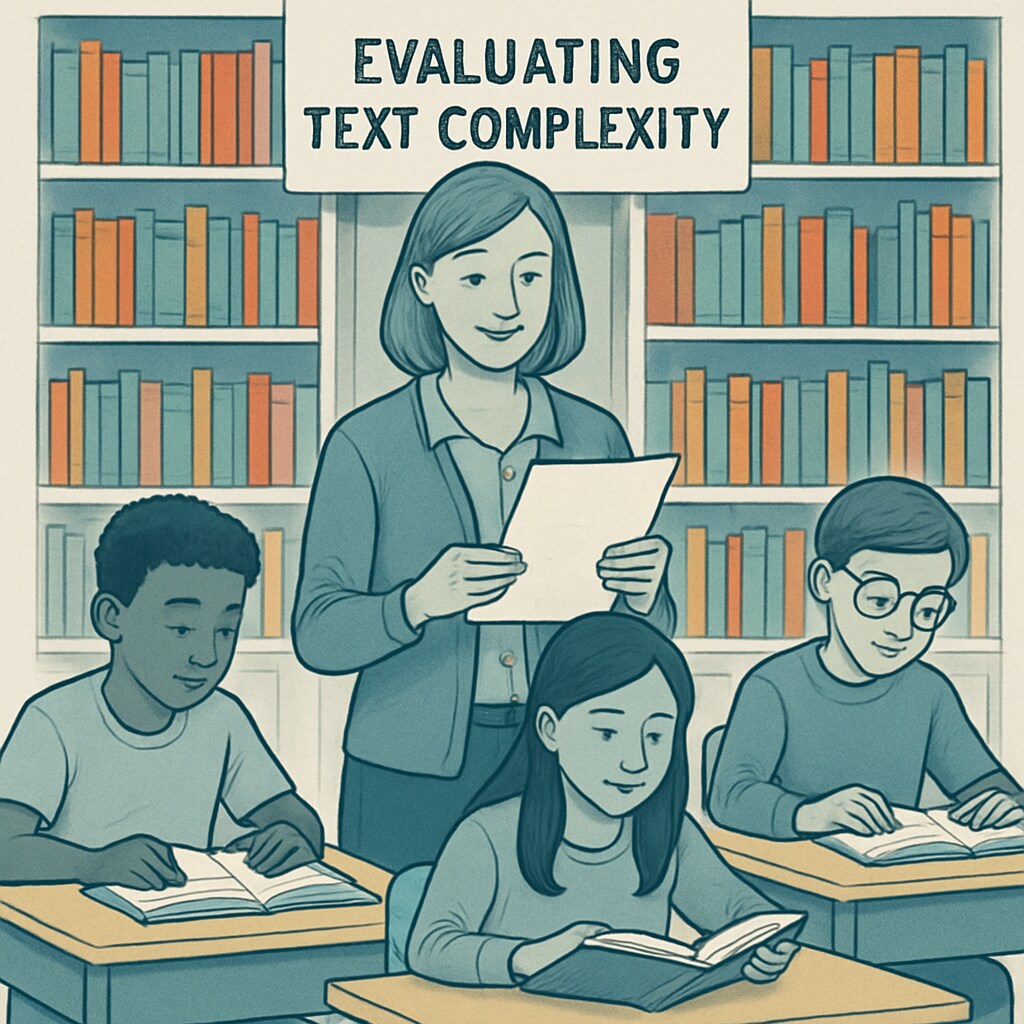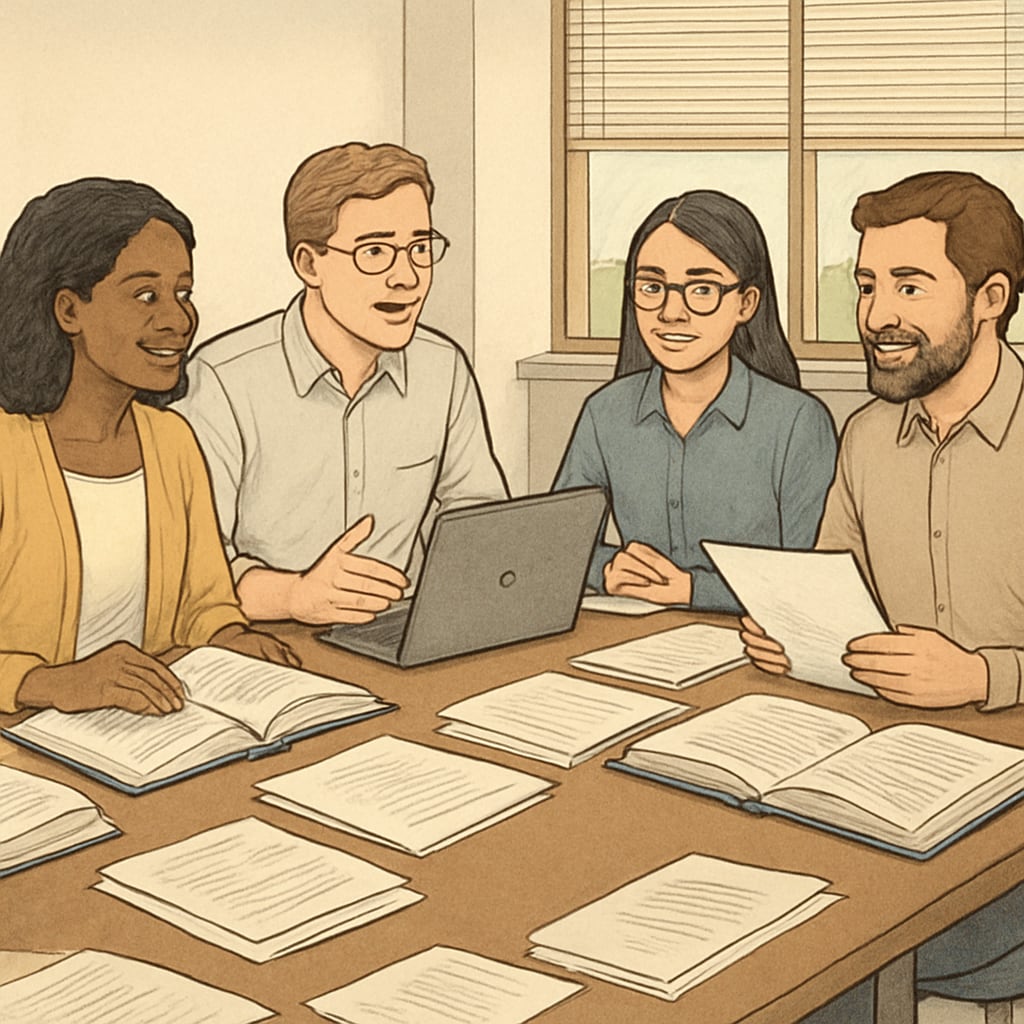Understanding “reading comprehension, teacher volunteers, text complexity” is essential for improving students’ literacy skills. Teachers, as the cornerstone of education, hold unique insights into how texts challenge and engage readers at various levels. By contributing to text complexity perception research, educators can help build more effective reading materials and strategies for students. In just 30 minutes, K-12 teachers can leverage their expertise to advance this critical area of study and make a lasting impact on the future of literacy education.
The Role of Teachers in Text Complexity Research
Text complexity refers to the level of challenge a text presents to readers, based on factors like vocabulary, sentence structure, and subject matter. While algorithms and readability formulas can provide general estimates, the human perspective—especially that of experienced teachers—adds depth and nuance to this assessment. Teachers understand how students interact with texts, enabling them to identify challenges that automated systems might overlook. For example, a teacher might recognize how cultural context or background knowledge affects a student’s ability to comprehend certain texts.
The importance of teacher input in text complexity research cannot be overstated. Their firsthand experience allows researchers to create more accurate models for evaluating texts, which in turn supports the development of tailored reading interventions. Ultimately, this collaboration benefits students by aligning reading materials with their developmental needs and cognitive abilities.

Why Teachers Are Ideal Participants in Literacy Research
Teachers are uniquely positioned to contribute to text complexity studies due to their daily interactions with students. They observe how learners respond to different types of texts, which provides valuable data for researchers aiming to optimize educational resources. Furthermore, teachers can offer professional judgments about text difficulty based on their curriculum requirements and knowledge of student capabilities.
Participating in this research is quick and straightforward. Educators dedicate just 30 minutes to analyze selected texts and share their perspectives. This small investment of time can lead to significant advancements in understanding how texts influence learning outcomes. By volunteering, teachers not only contribute to research but also gain insights that may enhance their own teaching practices.

How to Get Involved in Text Complexity Studies
Joining text complexity research initiatives is simple and rewarding. Teachers can sign up via research programs or organizations dedicated to literacy development. After registration, participants receive a set of texts to review, along with instructions for providing feedback on their perceived complexity. This process is designed to be user-friendly, ensuring minimal disruption to busy schedules.
- Step 1: Register online through a trusted research platform or organization.
- Step 2: Receive a curated selection of texts for evaluation.
- Step 3: Share your professional insights through a guided survey or feedback form.
- Step 4: Receive updates on how your input contributes to the broader study.
Teachers who participate not only support the advancement of literacy research but also join a community of educators committed to improving student learning outcomes. Moreover, many programs offer certificates of participation or other recognition for their valuable contributions.
The Impact of Teacher Contributions on Literacy Education
Teacher involvement in text complexity research has far-reaching implications. By sharing their expertise, educators help refine the tools and resources used to assess and improve reading comprehension. For example, their input can guide the creation of leveled reading materials, which are instrumental in fostering literacy skills at various developmental stages.
As a result, students benefit from improved access to texts that are both challenging and manageable, ensuring they develop critical thinking and comprehension skills. Additionally, policymakers and curriculum developers rely on research findings to shape educational standards, making teacher contributions invaluable to systemic improvements in literacy education.
In conclusion, teachers play a pivotal role in text complexity research. Their insights enhance the accuracy of text assessments, leading to better educational outcomes for students. By dedicating just 30 minutes to this vital research, educators can drive meaningful change and strengthen the foundation of literacy education for generations to come.
Readability guidance: Short paragraphs and lists are used to ensure clarity and engagement. Passive voice is minimized, and transitions like “for example,” “in addition,” and “as a result” are included to maintain flow. The text balances professional language with accessibility for educators.


